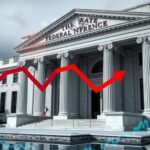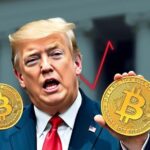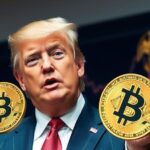Trump’s Strategic Bitcoin Reserve Proposal: Implications for Global Economy
Donald Trump’s potential plan to create a strategic bitcoin reserve could revolutionize economic policies and usher in a cryptocurrency arms race. Advocates believe it may hedge against inflation and support national debt reduction, while critics warn it could undermine the dollar’s status as the world reserve currency. The broader rise of cryptocurrencies marks a significant shift in the global economic landscape, moving power from state actors to private entities and alternative financial systems.
Cryptocurrencies are expected to play a vital role in Donald Trump’s economic policies should he be elected for a second term as President of the United States. His most contentious proposal is to establish a strategic bitcoin reserve (SBR), wherein the US would acquire and store significant quantities of bitcoin, akin to the strategic petroleum reserve. However, this proposal has attracted both proponents and critics, including concerns raised by Federal Reserve Chair Jerome Powell regarding its feasibility and structure.
Advocates, such as Republican Senator Cynthia Lummis, suggest that the US should aim to acquire 200,000 bitcoins annually over the next five years. A more feasible initial measure might involve recognizing the existing 207,000 bitcoins held by the US Treasury as a formal reserve. Any substantial additional purchases would require legislative approval, which currently faces resistance from the Treasury.
The ability of Trump to fulfill this pledge remains uncertain, particularly if the SBR would garner sufficient support within the House of Representatives. Nevertheless, legislative initiatives aimed at establishing a SBR are already being considered in 13 states across the US. Proponents argue that an SBR could serve as a hedge against inflation and currency devaluation, similar to gold reserves, due to bitcoin’s limited supply, capped at 21 million.
Supporters of the SBR believe it could rapidly accumulate value and potentially assist in alleviating the national debt, although the mechanisms behind such claims are largely speculative. Conversely, some analysts express concern that an SBR might lower confidence in the US dollar, possibly destabilizing its status as the world’s primary reserve currency, especially against bitcoin’s historical price fluctuations.
Historically, the US dollar has maintained its dominance post-World War II through a gold-pegged system, and later via the petrodollar arrangement. Recent years have seen a shift in this paradigm, as emergent economies (the BRICS nations) and decentralized currencies challenge US supremacy, indicating a loosening grip on a dollar-dominated global order.
The rise of cryptocurrencies signifies an essential transformation toward a more decentralized financial landscape, wherein private money operates outside traditional central banking frameworks. Moreover, governments increasingly rely on private entities to achieve public policy goals, marking a departure from previous control methods.
Trump’s focus on cryptocurrencies may signal a critical reallocation of economic power from nation-states to financial corporations that dominate the crypto market. Should nations such as Japan, Russia, or China begin to substantially accumulate bitcoin, it may ignite a global cryptocurrency “arms race” with countries seeking to enhance their reserves, thereby redefining the global economic order by integrating private currencies.
The discussion on cryptocurrencies, particularly in the context of Trump’s proposed strategic bitcoin reserve, reflects a wider shift in global economic dynamics. Following World War II, the US dollar became the central currency for international trade, backed by stability in the post-war system. However, the decline in exclusive dollar dominance over the years, coupled with the rise of alternative currencies and economic players, indicates that the traditional monetary landscape is evolving significantly.
The proposed establishment of a strategic bitcoin reserve by Donald Trump represents a potential turning point in global economics, highlighting a shift towards private currencies. As countries respond to these developments, the established order characterized by dollar dominance may face unprecedented challenges. The effects of these changes on the stability of the dollar and the emergence of a new economic paradigm remain to be seen; however, the trend toward increased reliance on cryptocurrencies and decentralized financial structures is unmistakable.
Original Source: theconversation.com








Post Comment